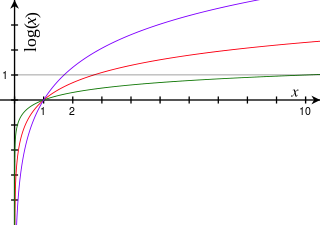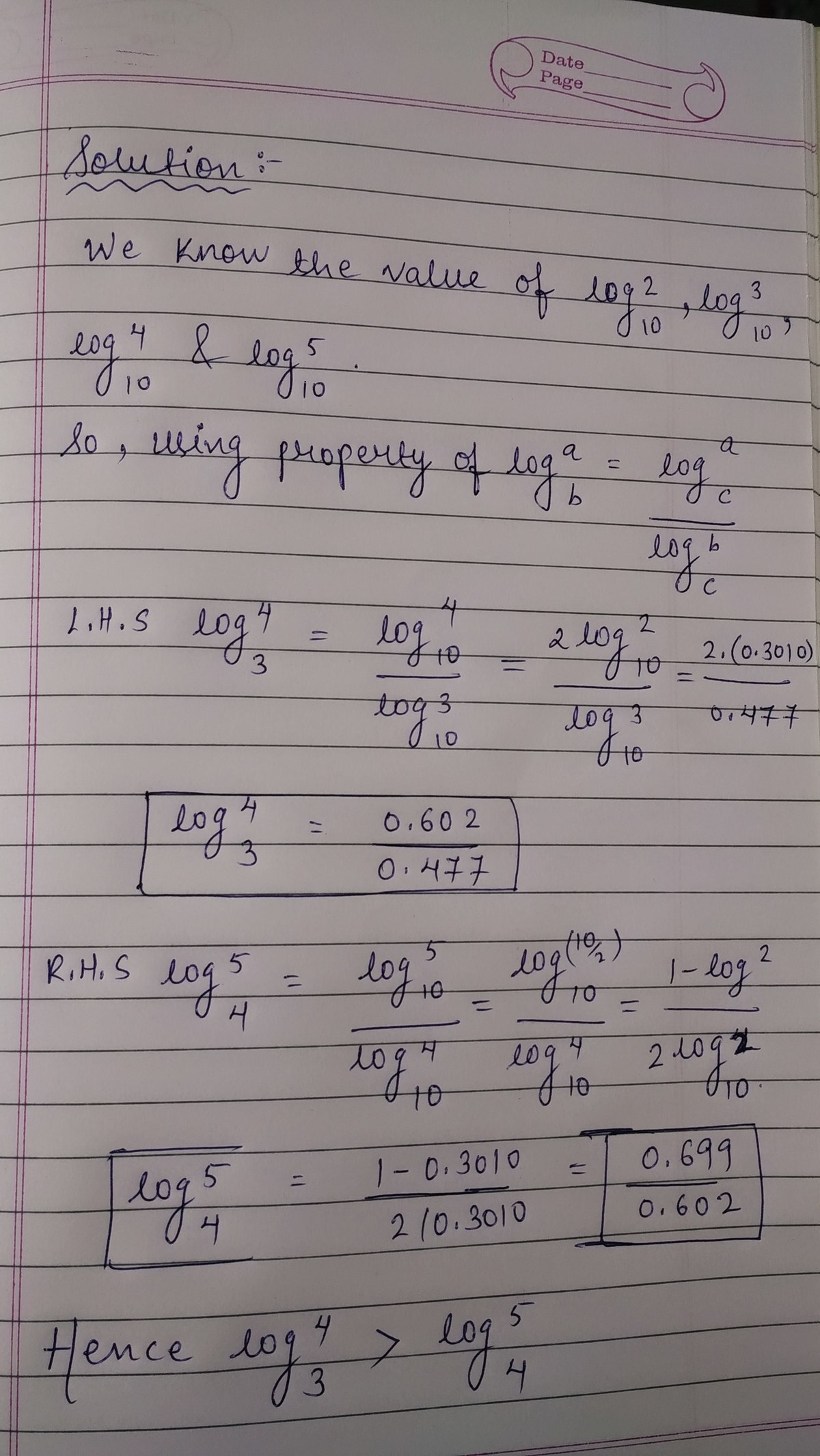Which log is "heavier"?
 lo
g
3
4
,
lo
g
4
5
lo
g
3
4
,
lo
g
4
5
Which of these numbers is larger in value?
Image Credit: Wikimedia IllestFlip .
This section requires Javascript.
You are seeing this because something didn't load right. We suggest you, (a) try
refreshing the page, (b) enabling javascript if it is disabled on your browser and,
finally, (c)
loading the
non-javascript version of this page
. We're sorry about the hassle.
10 solutions

Moderator note:
Is there a way to solve this without logarithmic tables?
Nice handwriting!
Moderator note:
Yes. This is the generalization via calculus.
For simplicity sake, can you solve this simply based on the fact that both functions f ( x ) = 3 x and g ( x ) = 4 x are concave upwards?
Observe that the derivative of the function log x is proportional to 1/x, a monotonically decreasing function on positive reals. This means the rate at which log x is increasing is decreasing, that is, log x grows more between 3 and 4, than between 4 and 5. Therefore, log 4 is greater than log 3 by more than log 5 is greater than log 4...which leads to the desired result.
My idea was to convert l o g 3 4 into 3 n = 4 , and l o g 4 5 into 4 n = 5 . Instead of finding n in both equations, I plugged in 2 for the value of n. ignoring the right side of the equations. The result from plugging in 2 gave me a larger value for 4 n = 5 .
Well, the way I saw this was that it is easier to increase a number by 1/4th than by 1/3rd.This means that the power to 4 to get 5 would be less than the power required for 3 to make it 4.
Moderator note:
You can't do that with logarithms.
That was my reasoning also. Isn't it valid ?
Let 3^x=4 and 4^y = 5. So, x/y=log5/log3 => x>y.
Moderator note:
Wrong. Check your working again.
Moderator note:
Check your working again. It's wrong.
Your approach is no different from interpreting the values from a logarithmic table.
Note: It is not "determinator", but "denominator" and it is positive.